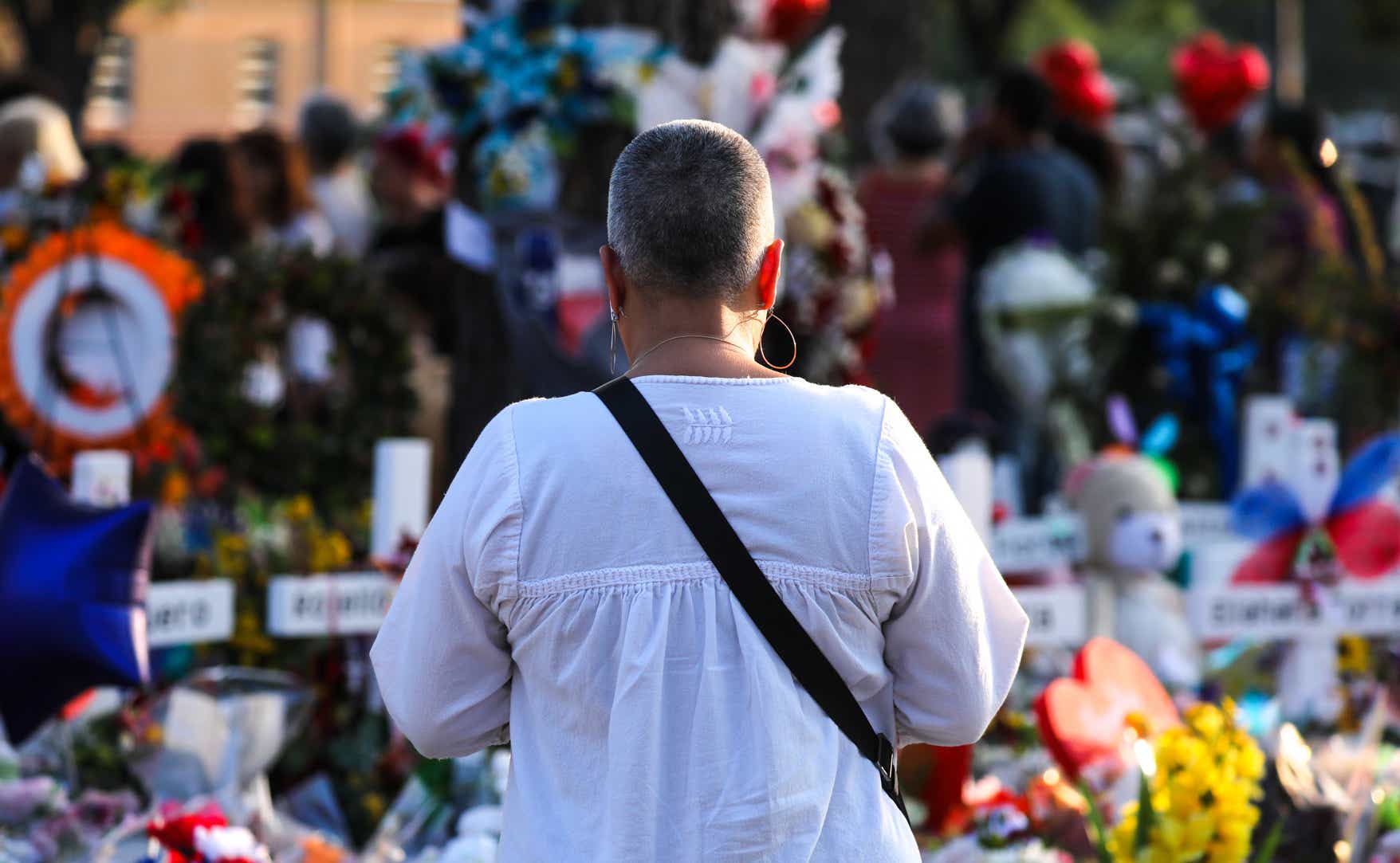I awoke to a dark memory the day after the Uvalde murders. A few years ago I’d read a newspaper story titled, “Woman Killed By Falling Debris.” An architect, walking to work in Manhattan, on a cold, rainy Tuesday morning, found herself in the wrong place at the wrong time. A chunk of terra cotta from a 105-year-old high-rise office building broke loose, fatally injuring the woman, a mother of three and the grandmother of one, in an instant.
Life, interrupted.
Among the many tributes written about this woman — let me name her, Erica Tishman, was this one: “To every opportunity, meeting, or event, she always brought her full self.” That’s the line that I remembered as I woke up last Wednesday. As I showered and got dressed, I asked myself, “how can I bring my full self with me today?” And tomorrow, and the next day. What does that even mean?
This is not an idle question or an existential one for me — or many I know — right now. Since the shooting murders of 19 school kids and two teachers in Uvalde, Texas. I’ve felt empty, heartsick, gutted, and angry. I don’t know what to do. I don’t know what to say.
In an instant, life changes. Life ends. Families and communities are torn asunder. I want to bury my head in the sand; at the same time, I am raging and want to turn that emotion into light rather than fire.
Listening to the radio, I hear both sides in the gun control debate follow their much-frayed playbooks. I can hardly pay attention; we’ve heard all this so many times now. Columbine High School. Sandy Hook Elementary. Marjory Stoneman Douglas High School. Republicans call for arming teachers and students. The Texas governor says this is a mental health issue. And Democrats, once again, push for “sensible gun control.” What do we do? Likely nothing. This is the very definition of Sisyphean, a task that is “both laborious and futile.”
I’ve spent much of the past several days talking to friends. Because I am a journalist, I get more than my fair share of questions. “How can we make a difference?” “How do I stop crying?” “What do I do about the rage consuming me?”
Frankly, I don’t know how we find the answer to the gun debate in this country. I don’t know how we protect kids in schools, moviegoers in theaters, worshippers in church, and shoppers in supermarkets.
The other night I went to bed in a deep muddle. But when I woke up — with the memory of the woman killed by falling debris — I found a sense of clarity, if not urgency, about what we can say, and what we can do to help each other. I went online and re-read the emotional eulogy written by Erica Tishman’s husband who told mourners at her funeral that every morning from the day the two met in 1982, he would take her face in his hands, kiss her before leaving for work, and tell her that he loved her.
In other words, he brought his full self, his full heart to his sweetheart every day. And that is my answer, right now, to what can we do, what can we say. I made a pan of brownies for friends one morning. I texted one of my two sisters-in-law that she’s my favorite (with a wink of course) because she’s home with Covid. I kissed my puppy. I asked my Facebook friends, “how are you doing?” (and heard an earful back.) I made a donation to the Giffords Law Center to Prevent Gun Violence (and I hope you will, too). Oh, and I was on the receiving end of various “gifts,” too. Out of the blue, a dear friend emailed me, writing, “Hey, I love you.” A different friend told me, “we need to be here for each other.”
“Witnessing kindness inspires kindness, causing it to spread like a virus,” wrote Stanford researcher, Jamil Zaki.
I’m not going to pretend that my advice to reach out to friends and strangers will solve the gun debate. But right now, we need to get tomorrow, and the next day, and the day after that. How can you bring your full self to those you care about, maybe even those you don’t know — yet? And how can you spread the love? I think you know.
Steven Petrow is an award-winning journalist and author who’s written for the Washington Post and New York Times









